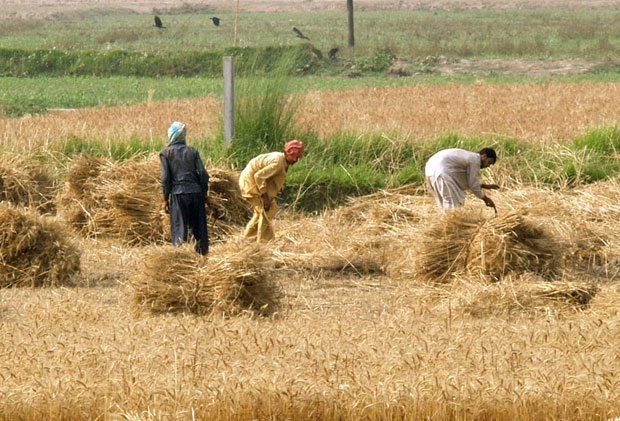LAHORE
The Sindh government could not be able to develop the Sindh Agricultural Development Strategy Framework despite wasting four years spending of Rs 361 million, which has created a further delay in the Rs 17.9 billion World Bank loan disbursement, documents available with Pakistan Today reveal.
The documents say, WB has downgraded implementation progress (IP) rating of the Sindh agricultural growth programme as unsatisfactory for this delay and has labelled it as largely responsible for the slow implementation and low disbursement rate.
The sub-component of the document – A3 – relates to strategic planning for the Sindh agricultural sector. The project was to finance the development of Sindh Agricultural Development Strategy; and preparation of feasibility studies for future investments.
The documents indicate that Sindh Agricultural Development Strategy had to play its core contribution to the project that was to finance development of the provincial strategy for setting up long-term development and growth vision for Sindh’s agricultural sector.
This component was meant to more accurately forecast needs of the sector relative to pricing, climate smart agriculture, competitiveness and consumer demand, etc. The strategy was to provide help in financing economic modelling, public expenditure review, private sector development, and sectoral results framework, to inform future investment planning as part of preparing background studies.
The documents highlight that preparation of feasibility studies are badly needed for the Sindh agriculture sector for developing future investment plans. The project will finance preparation of studies on additional crop and livestock value chains including, but not limited to, fisheries and aquaculture, meat production and marketing, seed production and food storage, etc. The studies were to feed into discussions for future investment project preparation.
Pointing at the technical aspect, the documents indicate that initially, three horticulture crops, one major crop and milk value chains had been selected for investments through this project. In addition, a key focus of the project remains on capacity building of various agricultural stakeholders including farmers, producers, agribusinesses and public sector agencies, in particular, the research and extension wings of the two departments.
The project also intends to address the enabling environment for promoting market growth and reforms and specifically proposes the development of the Sindh Agricultural Development Strategy. The Strategy will define the overall strategic vision of the provincial government for sector growth as well as identify various analytical pieces, the reforms agenda where policy issues need to be addressed for promoting viable growth in this sector.
The project design also includes institutional strengthening and capacity building of the implementing agencies – Department of Agriculture and Department of Livestock and Fisheries – and in particular augments the capacity and knowledge within the research and extension wings of these departments. The study was to provide help also in financing a limited pilot of competitive agricultural research fund and preparation of proposals for future investments. The objective was to build a sufficient pipeline of ideas and viable investment plans that are fully assessed for their economic and financial feasibility as well as meet the overarching goals of sectoral growth and outreach to direct and indirect beneficiaries.
Pointing at government’s existing financial management arrangements, the documents point out that most of the financial management staff in the two implementing departments do not have accounting qualifications but have been performing these functions for many years. Adequately qualified financial management staff would be recruited for the PMUs and PIUs. The hiring of staff was a condition for further negotiations.
It was also pointed out that there are no internal audit arrangements in either the Department of Agriculture or the Department of Livestock and Fisheries. Therefore, these functions would be outsourced, besides previous years’ audit reports of the two departments did not highlight any major accountability issues.




